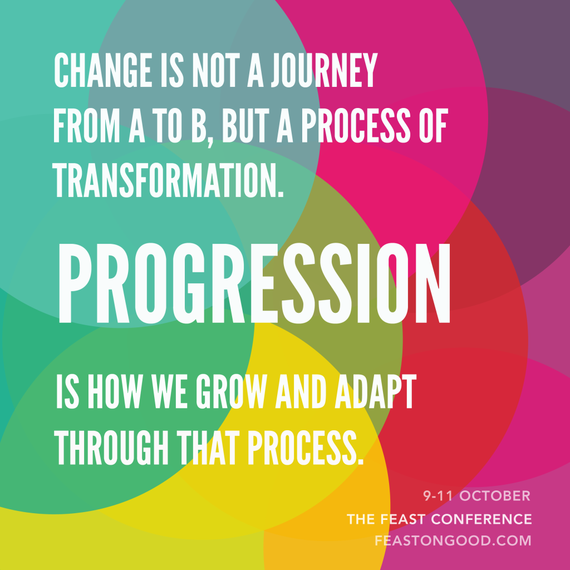Lots of entrepreneurs talk about disruption these days. Disrupting the music industry, disrupting education -- for anything there is, there is something to disrupt.
Some things ought to be disrupted, particularly when the foundational principles or processes on which they're based are faulty and create bad outcomes for people, society and the planet at large. The interesting and challenging thing is that sometimes systems work quite well for some amount of time before they don't. Sometimes it's because they outgrow or outlive their original intended purpose, and sometimes they were flawed from the start.
Take, for example, the financial system. Currency as a form of exchange is an incredibly effective, simple and elegant system. According to Douglas Rushkoff, back in the day when it was run in the form of receipts for grain, shoes and other services and it was deflationary as those goods and services degraded. At that time, currency was particularly liquid, and it encouraged a system not of hoarding and scarcity, but of use, liquidity and abundance. Today, there are many issues with the fundamental principles of the system that we use to manage this tool: That it is run through a central system that controls its "worth," that there are no ways to define its value and the principles of worth in society. All of this does not encourage its liquid use in the system.
Now look at something like education. Particularly in the U.S., it was built for a particular purpose at a particular time. Based on what the world thought and knew, it served its purpose and was relatively effective at teaching people what they needed to know. But the progression of the principles that the current educational system is based on -- segregation of disciplines, top-down curriculum, even teaching as a noble profession as opposed to one financially valued -- are things that have lead to a highly rigid and industrial model of education in a post industrial world. It has not grown with the changing times.
Just like corporate companies that have been designed to do one thing well and incredibly efficiently, so too has the education system become efficient at serving a set curriculum in a more or less uniform way. Just as we've come to appreciate design to individualize the products we purchase to meet our unique needs, we are also coming to learn that not everyone does best with the same education model. But the system was not designed to innovate and change. It was designed to weather generations.
Anil Dash said at The Feast last year,
The thing about disruption is that it generally is this sort of 'let's change things without necessarily thinking through the implications'. Frankly, in the case of the music industry where mostly the people who were most fundamentally disrupted were music exec and record labels, much more troubling is when we disrupt education or other things that are bedrocks of having a functioning society. And the people at risk is not a big wig at a record label, but a kid learning. So this pattern of disruption that tends to happen has a couple of flaws not because they're intractable or because I want to demonize my fellow technologists. This time the stakes are so high if education gets disrupted by technology that we can't afford to screw it up. We can't let ourselves make the same mistakes over and over.
How do we approach innovation not necessarily as disruption but as a process of progression? How do we build on, adapt, and learn from the processes and practices that came before? How can we, like those who design algorithms, look at fractal and exponential growth -- the principles we want to put in place and to scale that will allow more natural, abundant, and appropriate behaviors and systems to flourish? Any complexity theorist will tell you: it is the simplest structures that are the most replicable, and that basic rules and principles, when replicable, can ripple out to define seemingly beautiful, complex and natural forms. How can we learn from and apply this to the way that we think about impact in the world?
Like a vine growing on an old building, how do we use the old as a lattice for the new? How do we carefully design for the natural principles that we want to see flourish? And in some cases, how do we design new systems that overtake the old with this in mind, not by intentionally disrupting, but by creating an alternative system all together?
This is what we will be exploring at this year's Feast. At learning these principles, looking at where things are headed across culture, cities, wellness and more, and where we might take them through interventions that apply this thoughtful intention. Join us.
At The Feast, leaders across disciplines come together to revolutionize their industries and create social impact. If you'd like to come, request an invite. Or if you know someone who should be there, nominate them for an invitation.
